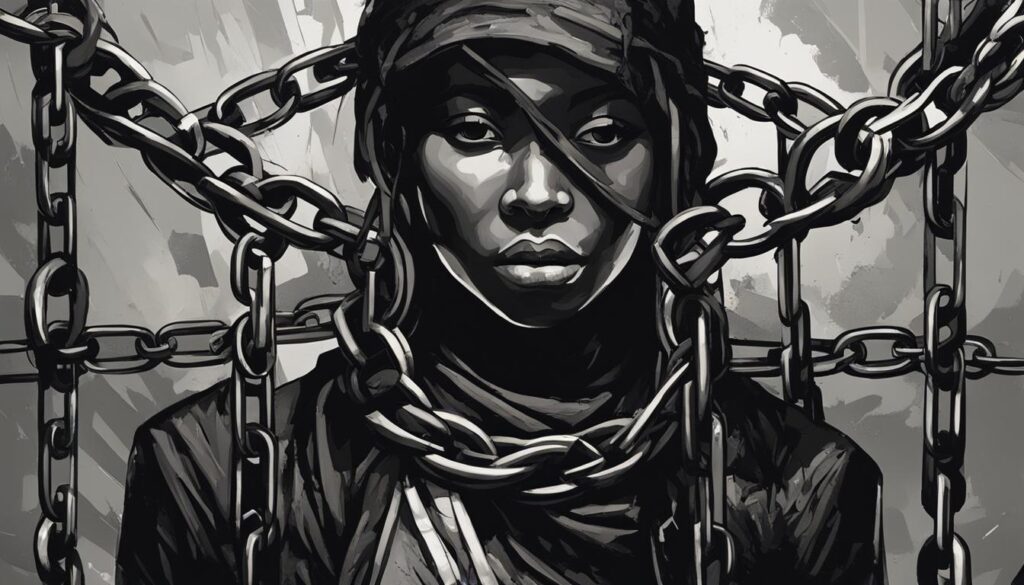Looking for a thought-provoking audiobook that is sure to leave a lasting impact? Look no further than “Infidel” by Ayaan Hirsi Ali. This powerful memoir delves into Hirsi Ali’s life story, exploring themes of courage, resilience, and cultural identity. In this audiobook review, we’ll explore the key elements of this compelling work and evaluate its performance in audio format.
Whether you’re a fan of memoirs, interested in women’s rights or the ongoing dialogue surrounding religious and cultural differences, or simply looking for an engaging and moving audiobook, “Infidel” is sure to impress. Keep reading to learn more about this unforgettable work by Ayaan Hirsi Ali.
About the Author
Ayaan Hirsi Ali, the author of “Infidel,” is a Somali-born Dutch-American activist, feminist, and writer. She was born in Mogadishu, Somalia, in 1969, and raised in a conservative Muslim family. After facing several challenges and injustices within her family and community, Hirsi Ali escaped to the Netherlands, where she found refuge.
Since then, she has become an outspoken advocate for women’s rights, human rights, and freedom of speech, particularly in Muslim communities. Hirsi Ali has written several books, including “Infidel,” “Nomad,” and “Heretic,” which have garnered both critical acclaim and controversy.
Her activism has led to numerous threats against her life, and she now resides in the United States, where she continues to speak out on issues of social justice and equality.
Summary of “Infidel”
Ayaan Hirsi Ali’s memoir “Infidel” is a powerful story of resilience, courage, and self-determination. The book chronicles the author’s experiences growing up in a traditional Muslim family in Somalia, her escape to the Netherlands, and her eventual political career as an outspoken advocate for women’s rights and a critic of Islamic fundamentalism. Throughout the memoir, Hirsi Ali grapples with questions of identity, faith, and freedom, exploring the clashes between traditional values and Western culture, as well as the personal toll of her activism.
Themes Covered in “Infidel”
In “Infidel,” Hirsi Ali explores a variety of themes, including:
| Theme | Description |
|---|---|
| Identity | Hirsi Ali examines her own identity as a Muslim woman, grappling with questions of faith and cultural expectations. |
| Freedom | The memoir chronicles Hirsi Ali’s journey towards personal freedom, both from the constraints of traditional Islam and from her own traumatic past. |
| Clash of Cultures | Throughout “Infidel,” Hirsi Ali explores the ways in which Islamic culture clashes with Western values, as well as the challenges of assimilating into a new culture. |
| Faith | The memoir documents Hirsi Ali’s changing relationship with faith, including her eventual rejection of Islam. |
“Infidel” offers an intimate look at Hirsi Ali’s personal journey, while also providing a broader exploration of significant cultural and political issues.
Ayaan Hirsi Ali’s Childhood and Early Life
Ayaan Hirsi Ali was born on November 13, 1969, in Mogadishu, Somalia. A member of the Darod clan, she grew up in a conservative Islamic household with her father, a prominent opposition politician, and her mother, a traditional housewife. Despite her family’s privileges, Ayaan had a challenging childhood, with her parents’ tumultuous relationship and her father’s frequent absences due to his political duties.
From a young age, Ayaan was expected to adhere to strict Islamic laws and customs. She attended a Muslim girls’ school, where she memorized the Qur’an and learned to recite prayers. However, she also witnessed the oppression of women within her community, including female genital mutilation and forced marriages.
In her teenage years, Ayaan began to question her faith and the restrictions placed upon her as a woman. She rebelled against her family’s expectations, refusing to wear the hijab and expressing her desire to pursue an education. Her progressive views led to conflicts with her family and the wider community, and she eventually resolved to leave Somalia in search of a better life.
Family History and Cultural Background
Ayaan Hirsi Ali’s family was part of the Darod clan, a sub-group of the larger Somali ethnic group. Her father, Hirsi Magan Isse, was an opposition leader and a member of Somalia’s parliament. Her mother, Asha Ismail, was a homemaker who adhered to traditional Muslim values.
The Darod clan is historically known for its adherence to conservative Islam and classical Somali culture. Within this framework, women’s roles are predominantly restricted to the household, and adherence to religious customs is strictly enforced.
Impact on “Infidel”
Ayaan Hirsi Ali’s childhood experiences in Somalia, including her religious upbringing, family dynamics, and cultural background, greatly influenced her memoir “Infidel.” The book explores the themes of identity, faith, and cultural clashes, which are largely shaped by her upbringing and early life experiences.
Through vivid descriptions of her childhood and the challenges she faced, Ayaan Hirsi Ali brings to life the cultural and religious divide that exists between East and West. She explores the realities of growing up in a society bound by tradition and the desire to break free from the shackles of cultural norms.
Escape from Somalia
Ayaan Hirsi Ali’s escape from Somalia is a remarkable tale of courage and perseverance. Born into a traditional Muslim family, Hirsi Ali faced countless challenges growing up, including a forced marriage at the age of 22. However, her ultimate break with Islam and her outspoken criticisms of the religion led to death threats and political persecution.
In 1992, Hirsi Ali fled to Germany to escape her family and her past. From there, she made her way to the Netherlands, where she sought and was granted asylum. During this time, Hirsi Ali changed her name and began to speak out against the oppression of Muslim women and the dangers of Islamic fundamentalism. Her advocacy work propelled her into the Dutch political sphere, where she served in the Dutch parliament for several years.
Despite the danger and uncertainty that came with her escape from Somalia, Hirsi Ali never compromised her principles. She continues to be a fierce advocate for women’s rights, individual freedom, and secular democracy.
Life in the Netherlands and Political Career
After fleeing from Somalia, Ayaan Hirsi Ali sought refuge in the Netherlands where she started building her new life. She learned Dutch and began studying political science at the Leiden University. She worked as an interpreter and gained insights into the daily lives of Dutch Muslims, eventually leading to a job as a researcher for the Labor Party. Her political aspirations led her to join the People’s Party for Freedom and Democracy (VVD), which is known for its commitment to liberal values and individual freedom.
During her time as a member of parliament, Ayaan Hirsi Ali became one of the most outspoken advocates for the rights of Muslim women, particularly regarding forced marriages and the practice of female genital mutilation. Her efforts to raise awareness and introduce legislation to protect women led to death threats from Islamic extremists.
Despite facing criticism and opposition, Ayaan Hirsi Ali remained committed to her cause and eventually became one of the most recognizable and influential voices in modern feminism. However, her views on Islam and the role of religion in society have also been met with controversy and criticism.
Controversies and Criticisms

Ayaan Hirsi Ali’s views on Islam and her outspoken activism have generated significant controversy and criticism from various sources.
| Controversies | Criticisms |
|---|---|
| – Hirsi Ali’s criticism of Islam as a religion of violence and oppression has been called Islamophobic by some. | – Some critics have accused Hirsi Ali of promoting anti-Islamic sentiments and contributing to negative stereotypes of Muslims. |
| – Hirsi Ali’s support for the Dutch politician Geert Wilders, who is known for his controversial views on Islam, has drawn criticism. | – Some have accused Hirsi Ali of being a self-promoter who uses her personal story for political gain. |
| – Hirsi Ali’s statements about the need for Muslim reform and her rejection of the notion that Islam is a peaceful religion have been controversial. | – Some have accused Hirsi Ali of being divisive and promoting a clash of cultures rather than seeking dialogue and understanding. |
In spite of the controversies and criticisms she has faced, Hirsi Ali remains a prominent figure in discussions about Islam, feminism, and human rights.
Themes Explored in “Infidel”
Ayaan Hirsi Ali’s memoir, “Infidel,” explores several themes central to her life story and experiences. One such theme is identity, as Hirsi Ali navigates the complex cultural and religious identities imposed upon her by her family and society, ultimately embracing her own individual identity and breaking free from traditional constraints.
Freedom is another significant theme in “Infidel,” as Hirsi Ali describes her journey to escape from Somalia and the oppressive expectations of her community, as well as her continued advocacy for freedom and human rights.
Faith is a central theme in “Infidel,” as Hirsi Ali grapples with her own religious beliefs and those of the larger Muslim community, ultimately rejecting Islam and advocating for a modern, secular society.
The clash of cultures is also a prominent theme in “Infidel,” as Hirsi Ali confronts the cultural differences between the West and her native Somalia, as well as the challenges of assimilating into Dutch society while holding onto her own identity and values.
Overall, Ayaan Hirsi Ali’s “Infidel” is a thought-provoking exploration of personal identity, freedom, faith, and cultural clashes, challenging readers to reflect on their own beliefs and values. Through her powerful storytelling, Hirsi Ali offers a unique perspective on the complex societal issues facing our world today.
Writing Style and Narrative Structure
Ayaan Hirsi Ali’s writing style in “Infidel” is straightforward and unapologetic, reflecting her honest and unwavering personality. She uses clear and concise language to convey her story and ideas, making it accessible to a wide readership.
The narrative structure of the memoir is chronological, tracing her life from childhood to adulthood and following her journey from Somalia to the Netherlands and the United States. This approach allows the reader to track her personal growth and development, as well as the challenges she overcomes along the way.
The use of foreshadowing and flashbacks adds depth and complexity to the memoir, revealing the impact of her experiences on her worldview and providing context for her decisions and actions. Additionally, Ayaan Hirsi Ali’s use of vivid imagery and sensory details brings her story to life, immersing the reader in her world and experiences.
A Comparison of Narrative Structures
| Narrative Structure | Strengths | Limitations |
|---|---|---|
| Chronological | Allows for clear tracking of personal growth and development, provides context for decisions and actions | May not showcase the impact of experiences on worldview or allow for non-linear storytelling |
| Non-linear | Allows for exploration of themes and ideas, can create suspense and intrigue | May be challenging to follow, can confuse the reader if not executed well |
| Circular | Provides closure and a sense of completion, can highlight the cyclical nature of life | May not allow for exploration of new ideas or experiences, may feel repetitive or predictable |
Audiobook Performance
Listening to the audiobook version of “Infidel” is a powerful and immersive experience. The narration by Bernadette Dunne captures the emotional intensity of Ayaan Hirsi Ali’s story, drawing the listener into her journey of resilience and courage.
Dunne’s pacing is deliberate, taking the time to properly convey the weight of each moment in the memoir. Her voice is clear and expressive, allowing for an easy connection with the listener. Additional features, such as chapter summaries and author interviews, provide valuable context and insight throughout the audiobook.
The audiobook production of “Infidel” is a masterful adaptation, bringing Ayaan Hirsi Ali’s memoir to life in a new and engaging format. Whether you’re new to the story or revisiting it, the audiobook is a worthwhile addition to any reader’s collection.
Impact and Reception
The book “Infidel” by Ayaan Hirsi Ali has had a significant impact on readers since its publication, sparking thoughtful discussions and debates on topics related to religion, culture, and women’s rights. The memoir has been widely praised for its powerful storytelling and courageous portrayal of the author’s personal journey.
Since its release, “Infidel” has received numerous accolades and positive reviews, with many readers expressing admiration for Hirsi Ali’s resilience and determination in the face of adversity. The book has been translated into multiple languages and has sold millions of copies worldwide, making it a bestseller and a cultural phenomenon.
Impact on Discussions of Women’s Rights
Infidel has had a particularly significant impact on discussions of women’s rights, challenging traditional attitudes and beliefs about gender roles and the treatment of women in certain cultures. The book’s frank and honest portrayal of issues such as female genital mutilation, forced marriage, and domestic violence has helped to raise awareness of these important issues and generate wider support for efforts to address them.
Reception and Controversies
While “Infidel” has been widely praised for its honesty and bravery, the book has also faced its share of controversies and criticisms. Some readers have taken issue with Hirsi Ali’s views on Islam and her portrayal of certain cultural practices, arguing that it reinforces negative stereotypes and misrepresents the Islamic faith. Others have criticized her involvement in politics and activism, accusing her of opportunism and ideological rigidity.
Legacy of “Infidel”
Despite these controversies, it is clear that “Infidel” has left a lasting impact on readers and the broader cultural conversation. Hirsi Ali’s memoir has helped to shed light on important issues related to gender, culture, and human rights and has inspired many readers to speak out and take action in support of these causes. Its impact and influence are likely to continue to be felt for years to come.
Comparison to Other Memoirs
“Infidel” by Ayaan Hirsi Ali stands out from other memoirs for its raw honesty and unflinching examination of Islam, identity, and personal growth. Unlike other memoirs, which may focus more on celebrity or sensational events, “Infidel” invites readers on a deeply personal journey that is at once inspiring and challenging.
Comparison Table
| Memior | Style | Content | Personal Journey Portrayed |
|---|---|---|---|
| Wild by Cheryl Strayed | Reflective | Self-discovery and nature | Journey of hiking the Pacific Crest Trail |
| Becoming by Michelle Obama | Reflective | Politics and journey as a First Lady | Becoming who she is and defining her own path |
| The Glass Castle by Jeannette Walls | Narrative | Family and childhood | Growing up in an unconventional family and breaking away |
| “Infidel” by Ayaan Hirsi Ali | Narrative | Religion, culture, and women’s rights | Personal journey of leaving Islam and becoming an advocate for women’s rights |
While comparisons can be made between “Infidel” and other memoirs, the unique combination of themes, content, and writing style make it a one-of-a-kind work. Ayaan Hirsi Ali’s bravery in confronting controversial topics and sharing her personal story sets “Infidel” apart as a true masterpiece of memoir literature.
Sociopolitical Significance

The publication of “Infidel” by Ayaan Hirsi Ali has significant sociopolitical relevance, particularly in the ongoing discourse surrounding Islam, women’s rights, and the clash of cultures. Ali’s memoir challenges traditional beliefs and cultural norms, offering a unique perspective on the intersection of faith, politics, and human rights.
By sharing her deeply personal story of courage and resilience, Ali sheds light on the challenges faced by women in traditional Muslim societies, including forced marriages, genital mutilation, and religious oppression. Her powerful message has inspired many to reflect on the status of women in their own communities, and has helped to spark important conversations and debates surrounding issues of gender equality and human rights.
The controversies and criticisms surrounding Ali’s views on Islam and her outspoken activism have also contributed to a broader conversation about the role of religion in modern society, and the importance of free speech and open dialogue in addressing complex and often polarizing issues.
Themes in “Infidel”
| Themes | Description |
|---|---|
| Identity | Ali’s struggle to reconcile her traditional Muslim upbringing with her own independent spirit and desire for freedom. |
| Freedom | The search for individual freedom and autonomy in the face of cultural oppression and political upheaval. |
| Faith | The complexities of religious belief and its impact on personal identity and cultural norms. |
| Clash of Cultures | The tension and conflict that arises when traditional cultural norms and values clash with modern ideas and progressive social movements. |
The sociopolitical significance of “Infidel” is further underscored by its relevance to contemporary political and social movements. Ali’s activism and advocacy for women’s rights, free speech, and human rights have earned her international recognition as a prominent voice in the global conversation on these critical issues.
Analysis of the Audiobook Production
Listening to an audiobook requires a different level of involvement than reading a printed book. For “Infidel,” the audiobook production elevates the experience with exceptional sound quality and a well-paced narration. The book is narrated by the author herself, Ayaan Hirsi Ali, which adds a personal touch to the story and allows listeners to hear her voice and inflection.
The story flows smoothly, aided by a measured pace that ensures important details are not missed. The pauses between chapters and sections give the listener time to reflect on Ali’s powerful story. The only drawback is the occasional repetition of text in the audiobook version, which may distract some listeners from the narrative.
“Overall, the audiobook production of ‘Infidel’ is a highly recommended version of Ayaan Hirsi Ali’s memoir that captures the spirit of the book and provides an exceptional listening experience.”
Comparison of Print and Audio Versions
Comparing the audio and print versions of “Infidel,” it is clear that each offers its own unique experience. In the print version, readers can take their time to absorb the details of Ali’s story, underlining and highlighting key sections for future reference. In contrast, the audiobook version brings Ali’s story to life through her voice and inflection, creating an emotional connection with the listener that is difficult to replicate with the printed page.
The print version also includes additional footnotes and references that are not present in the audiobook version, making it a more comprehensive resource for further exploration. However, the audiobook version is the ideal choice for those who prefer a more immersive experience with Ali’s story.
Analysis of Audiobook Elements
| Element | Assessment |
|---|---|
| Sound Quality | Exceptional |
| Pacing | Measured and well-suited to the story |
| Narration | Author’s voice adds a personal touch and emotional connection |
| Repetitions | Occasional repetition of text may distract some listeners |
Recommended Audience
The audiobook “Infidel” by Ayaan Hirsi Ali is a must-listen for individuals seeking to learn about the experiences of Muslim women, the intersection of culture and religion, and the complexities of identity. This audiobook will be particularly impactful for audiences interested in activism, human rights, and sociopolitical issues. It is also ideal for individuals looking for a deeply personal and moving memoir that explores themes of resilience, courage, and freedom.
Ideal Audiences for “Infidel”
| Target Audience | Reasons to Listen |
|---|---|
| Muslim women | Discover the experiences of a prominent activist who faced immense challenges in advocating for Muslim women’s rights. |
| Individuals interested in human rights | Explore the intersection of culture, religion, and human rights through Ayaan Hirsi Ali’s powerful memoir. |
| Activists and advocates | Gain new insights into the challenges faced by individuals working to advance issues related to feminism, human rights, and freedom. |
| Anyone seeking a deeply personal and moving memoir | Experience the inspiring journey of Ayaan Hirsi Ali, as she overcomes immense challenges to achieve personal and professional success. |
Overall, “Infidel” is a powerful audiobook that will resonate with individuals seeking to learn about the experiences of Muslim women, the complexities of identity, and the challenges of activism and advocacy.
Conclusion
In conclusion, “Infidel” by Ayaan Hirsi Ali is a compelling memoir that offers a powerful testament to the human spirit’s resilience and courage. The book is a must-read for anyone interested in issues around religion, culture, and human rights. The audiobook version of “Infidel” is a fantastic way to engage with the story, offering an immersive experience that brings Ali’s words to life.
Overall, the audiobook performance is excellent, with a well-paced narration that captures the emotional intensity of the story. The production quality is also high, with clear sound quality and no distracting elements. The book’s impact on readers and its broader sociopolitical significance cannot be overstated, with its contributions to ongoing discussions around Islam, feminism, and human rights.
Recommended for mature audiences due to its mature themes, “Infidel” is a must-listen for anyone who wishes to gain insight into the universal struggle for freedom and identity. Whether you are a fan of memoirs or interested in exploring new perspectives, “Infidel” is well worth your time and attention.



